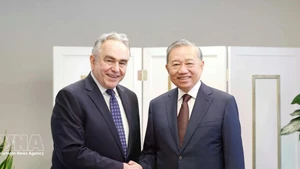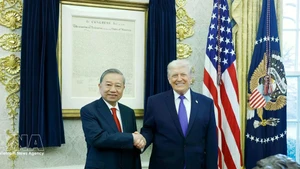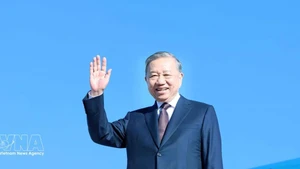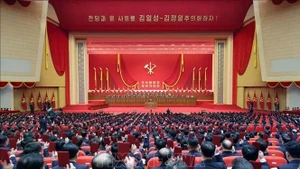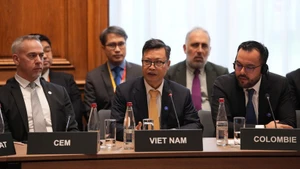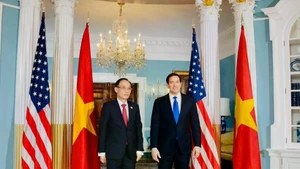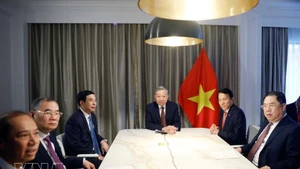Pham Quang Hung, Director of the ministry's International Cooperation Department, said that cooperation in training high-quality human resources between the two countries remains a top priority for Vietnam, adding that Russia remains a reliable destination for sending students for training, especially in basic sciences, engineering, new technologies, energy, digital technology, artificial intelligence, marine science, and arts.
Vietnam and Russia have implemented many cooperative ideas in the field of education and training, with priority given to training high-level human resources.
On the basis of a long-standing and close traditional relationship, the education and training cooperation between the two countries has always been seen as a bright spot in bilateral relations.
The former Soviet Union and Russia today have helped Vietnam train nearly 70,000 scientific and technical personnel, managers, and skilled technical workers over the last 75 years, with many of them having held important leadership positions in the Party, State, Government, National Assembly, State agencies, grassroots organisations, universities, and scientific research institutes.
The intellectual workforce trained in Russia has always been an important source of manpower with advanced working methods, significantly contributing to Vietnam’s national construction and serving as a solid and enduring bridge of friendship between the two peoples.
Since 2021, Russia has provided Vietnam with 1,000 scholarships, lifting the number of Vietnamese citizens trained in the country to dozens of thousands.
According to the MoET, over the past decade, along with human resources training efforts, cooperation between Vietnamese and Russian universities has been promoted with substantial developments, with hundreds of cooperation agreements signed between higher education institutions.
Vietnam and Russia currently maintain a mechanism to rotationally organise a forum of rectors of Russian and Vietnamese universities.
The 2nd forum of this kind took place in April this year in Moscow with the participation of representatives from 21 Vietnamese higher education institutions and 40 Russian universities, offering a chance to discuss ways to expand higher education cooperation, contributing to concretising and more effectively realising commitments to education and training cooperation signed between the two countries, and promoting academic exchange activities. At the event, about 30 cooperation documents between universities were signed.
In 2023, the two countries established networks of universities specialising in engineering, and information technology – telecommunications as an initiative to intensify bilateral cooperation between their top engineering universities, providing impetus for them to engage deeply in collaborative efforts in training high-level human resources and conducting joint research to serve the training and socio-economic development tasks of each nation.
Hung said the two sides will continue to explore and implement various cooperative activities in line with the Vietnam - Russia Comprehensive Strategic Partnership, focusing on upgrading the Pushkin Sub-Institute in Vietnam to a Pushkin Centre with investment from Russia, aiming to enhance Russian language teaching and popularise the Russian culture in Vietnam and regional countries.
Efforts will be made to encourage reputable Russian universities to partner with Vietnamese ones in joint training and science research cooperation programmes in Vietnam, he added.
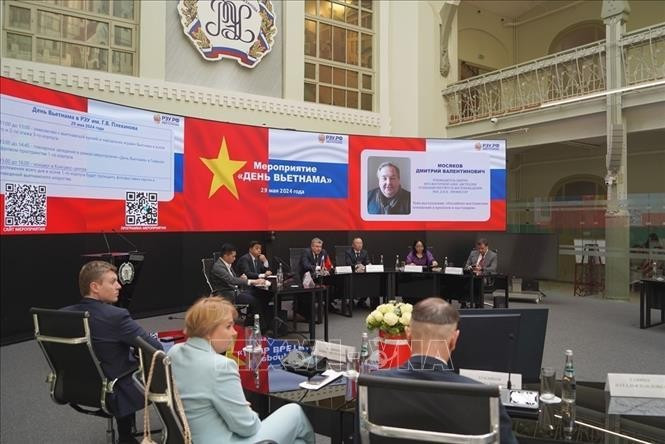
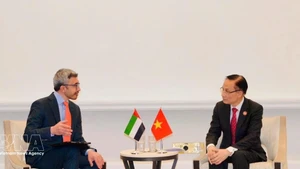
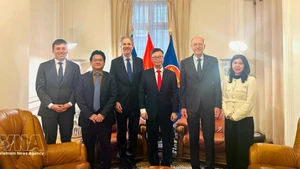
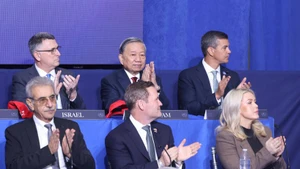
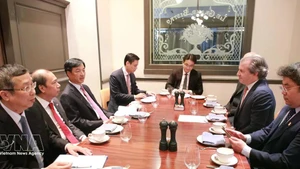
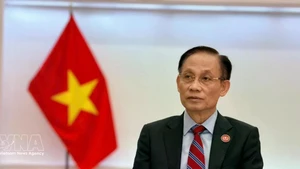
![[In pictures] Party General Secretary To Lam meets US President Donald Trump](https://en-cdn.nhandan.vn/images/dcd63867a0eed4c7753eb4bfb346593abc1ce710dfab8ad1b9aebd75ea6bf930b2ea13e4664779d689ba40aadd80f76d5d05d1208720fd7b0d811ace3a3297321c78cf738400e136e3f2d8790b24d43646e46edbe19517144a88f6ffb0d528f153574a7109328cc0949e4a4c16433c2ff751541639eefe4490518227264cbf8e/vna-potal-tong-bi-thu-to-lam-gap-tong-thong-hoa-ky-donald-trump-8599945.jpg.webp)
